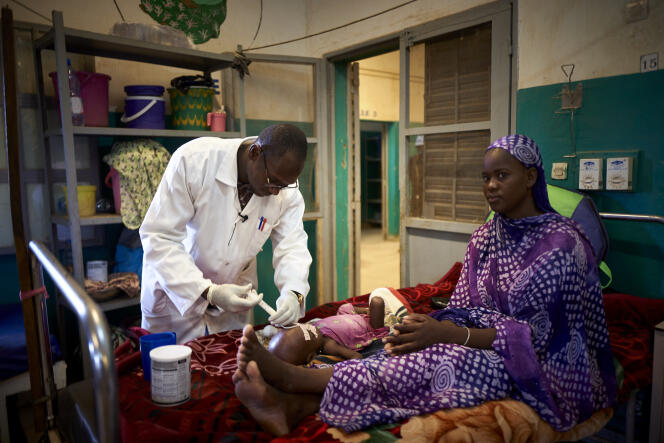
Gilles Fagninou was appointed in February as the regional director for the United Nations Children's Fund (UNICEF) for West and Central Africa. He is sounding the alarm over the deteriorating situation of children, particularly in the Sahel region.
How widespread is malnutrition among children in West and Central Africa?
In the six countries of the Sahel – Mali, Burkina Faso, Niger, Chad, Senegal and Mauritania – there are currently 6.9 million children under the age of 5 affected by acute malnutrition – 2.6 million more than in 2023. 1.4 million of them suffer from severe malnutrition, with a high mortality risk. For the entire population, including adults, of the region's 17 countries, the number of food-insecure people has risen from 29.5 million in March-April 2023 to 38 million at the same time this year. And, during the lean season [which precedes agricultural harvests], it is estimated that this figure could rise to 52 million.
How do you explain such degradation?
West and Central Africa are facing a series of problems that explain why food insecurity is on the rise. First, there's global warming. At present, we're recording unprecedented temperatures of over 45 degrees [on April 3, it was 48.5 degrees in Kayes, Mali, an absolute record in the country and for the whole of the African continent for April].
Insecurity is also on the rise. The Sahel region has been plagued by coups and counter-coups in recent years. Many populations have been displaced and, today, between 12,000 and 13,000 schools are closed; 28% of school-age children find themselves out of school, i.e. 39 million children, who have no access to an education and may find themselves at the mercy of ill-intentioned groups.
The region is also suffering the effects of external crises: Russia's war against Ukraine had an immediate impact on grain imports and, above all, on fertilizer supplies. Today, the impact of the war in Ukraine is less significant than in 2022, but food prices are still highly dependent on world energy prices.
How is the security situation in the Sahel affecting UNICEF's work?
Insecurity increases the cost of humanitarian action, multiplying it by two or three. We are obliged to set up what we call "arrangements with parties," who help us to know the situation by being our "eyes," and to be in contact with the children to provide them with the necessary assistance. What's more, not only is the cost of humanitarian action rising, but as the number of crises increases, we are obliged to share the same budget with many more countries.
You have 56.44% of this article left to read. The rest is for subscribers only.